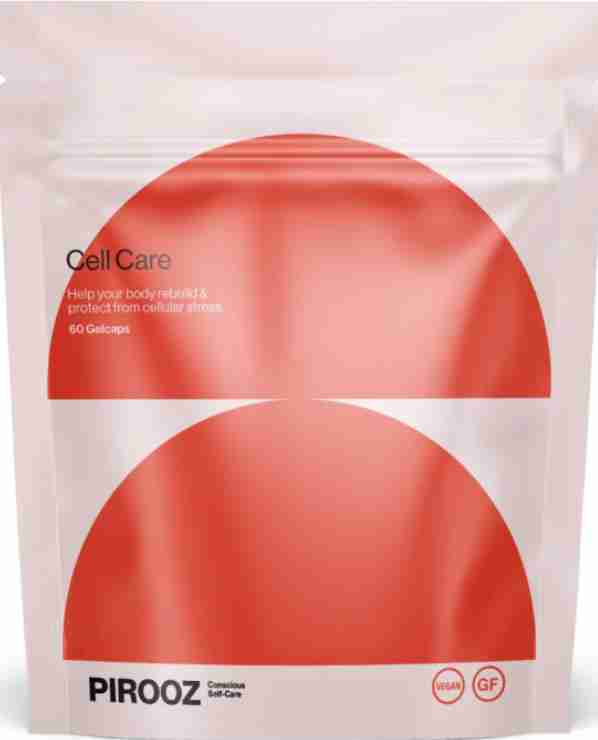In our modern world, we are constantly exposed to various environmental toxins. These toxins, found in the air we breathe, the water we drink, the food we eat, and the products we use, can significantly impact our health at a cellular level. Understanding how these toxins affect cellular health and how cell care supplements can help mitigate these effects is crucial for maintaining overall well-being.

Understanding Environmental Toxins and Cellular Health
Environmental toxins encompass a wide range of harmful substances, including heavy metals, pesticides, industrial chemicals, and pollutants. These toxins can infiltrate our bodies through multiple pathways and accumulate in our cells over time. The effects of these toxins on cellular health can be profound and include:
Oxidative Stress: Environmental toxins can generate free radicals, unstable molecules that cause oxidative stress. This stress damages cellular components, including DNA, proteins, and lipids, leading to impaired cellular function and increased risk of chronic diseases.
Inflammation: Toxins can trigger inflammatory responses in the body. Chronic inflammation can damage cells and tissues, contributing to conditions like cardiovascular disease, diabetes, and cancer.
Mitochondrial Dysfunction: The mitochondria, known as the powerhouse of the cell, are particularly vulnerable to toxins. Damage to mitochondria can reduce cellular energy production, leading to fatigue and decreased overall health.
DNA Damage: Some toxins can directly damage DNA, causing mutations that may lead to cancer and other genetic disorders.
Impaired Detoxification: Our bodies have natural detoxification processes, primarily carried out by the liver. However, excessive toxin exposure can overwhelm these systems, leading to the accumulation of harmful substances in cells.
The Role of Cell Care Supplements
Cell care supplements can play a vital role in protecting and restoring cellular health. These supplements provide essential nutrients and compounds that support cellular function, promote detoxification, and combat the damaging effects of toxins. Here are some key cell care supplements and their benefits:
Antioxidants: Supplements like vitamin C, vitamin E, and coenzyme Q10 are powerful antioxidants that neutralize free radicals, reducing oxidative stress and protecting cells from damage.
Glutathione: Often referred to as the “master antioxidant,” glutathione is crucial for detoxification and immune function. It helps neutralize toxins and supports the regeneration of other antioxidants.
N-acetylcysteine (NAC): NAC is a precursor to glutathione and supports its production. It also helps detoxify harmful substances and protect against oxidative damage.
Alpha-Lipoic Acid: This antioxidant supports mitochondrial function and helps regenerate other antioxidants in the body. It also chelates heavy metals, aiding in their removal from the body.
Milk Thistle: Known for its liver-protective properties, milk thistle contains silymarin, which supports liver detoxification and protects liver cells from toxins.
Chlorella: This green algae is known for its ability to bind to heavy metals and other toxins, facilitating their elimination from the body.
Omega-3 Fatty Acids: Found in fish oil, omega-3s have anti-inflammatory properties and support cellular membrane integrity.
Resveratrol: A compound found in grapes and red wine, resveratrol has antioxidant and anti-inflammatory properties that protect cells and support overall health.
Integrating Supplements into Your Lifestyle
To effectively protect and support your cellular health, it’s important to integrate cell care supplements with a healthy lifestyle. Here are some practical steps:
Balanced Diet: Consume a diet rich in fruits, vegetables, whole grains, lean proteins, and healthy fats. Foods like berries, nuts, leafy greens, and fatty fish provide essential nutrients and antioxidants.
Regular Exercise: Engage in regular physical activity to promote circulation, enhance detoxification, and reduce inflammation.
Adequate Hydration: Drink plenty of water to support cellular functions and help flush out toxins from the body.
Stress Management: Practice stress-reducing techniques like meditation, yoga, and deep breathing to lower inflammation and support overall health.
Avoid Toxins: Minimize exposure to environmental toxins by choosing organic foods, using natural cleaning products, and avoiding smoking and excessive alcohol consumption.
Consult a Healthcare Provider: Before starting any supplement regimen, consult with a healthcare provider to ensure it’s appropriate for your individual needs and health conditions.
Frequently Asked Questions
Q: Can cell care supplements completely eliminate toxins from the body?
A: While cell care supplements can support detoxification processes and reduce the impact of toxins, they cannot completely eliminate all toxins. It's important to combine supplements with lifestyle changes and minimize exposure to toxins.
Q: How do I know which cell care supplements are right for me?
A: Consult with a healthcare provider to determine which supplements are best suited for your individual health needs. They can recommend specific supplements based on your diet, health status, and potential deficiencies.
Q: Are there any side effects to taking cell care supplements?
A: Most cell care supplements are safe when taken as directed. However, excessive intake can lead to side effects. Always follow the recommended dosages and consult with a healthcare provider if you have concerns.
Q: How long does it take to see the benefits of cell care supplements?
A: The time it takes to see benefits can vary depending on the individual and the supplement. Some people may notice improvements within a few weeks, while others may take longer.
Q: Can children take cell care supplements?
A: Some cell care supplements are suitable for children, but it’s important to consult with a pediatrician before giving any supplements to a child to ensure safety and appropriate dosages.
By understanding the impact of environmental toxins on cellular health and incorporating cell care supplements into your daily routine, you can protect your cells, enhance your detoxification processes, and promote overall health. Remember, a holistic approach that includes a balanced diet, regular exercise, and stress management is essential for optimal results


